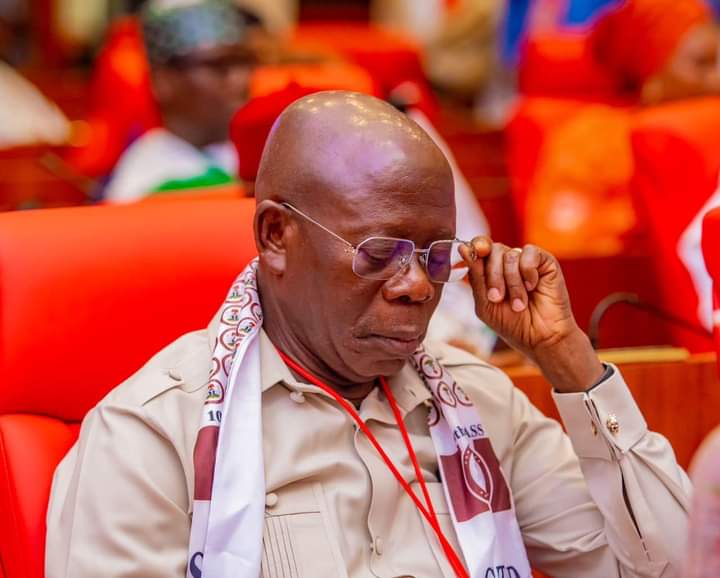Senator Adams Oshiomhole, representing Edo North Senatorial District, stated on Wednesday that the current generation of Nigerian workers is significantly poorer compared to past generations. He argued that the celebrated ₦70,000 minimum wage, when converted to dollars, amounts to just $42—a stark contrast to the value of the first minimum wage set under President Shehu Shagari.
Oshiomhole, a former president of the Nigeria Labour Congress (NLC), highlighted this disparity while addressing members of the Executive Intelligence Management Course 17 at the National Institute of Security Studies in Abuja. Comparing the current wage with historical figures, he said, “When minimum wage was established under President Shagari around 1981, it was approximately ₦125, equivalent to $160 per month. Today, the ₦70,000 wage equates to just $42, meaning workers are poorer than they were decades ago. This wage depreciation impacts quality of life and overall economic wellbeing.”
He argued that the Federal Government, alongside high-revenue states, should pay more than the agreed ₦70,000 minimum wage. Recalling his time as NLC president, he noted how he organized strikes to push for higher wages, including one that compelled the Lagos State government under then-Governor Bola Tinubu to pay above the national minimum wage of ₦5,000.
“A serious employer should not pay the bare minimum,” he asserted. “The Federal Government should periodically adjust the minimum wage, especially in high-revenue states like Delta, Bayelsa, Rivers, Akwa-Ibom, and Lagos. During my tenure, we insisted that these states pay above the federal minimum, even when the governor of Lagos, now president, argued it was unaffordable.”
Oshiomhole also advocated expanding the minimum wage law to cover domestic workers and other informal sector employees. He suggested that the law, which currently applies only to businesses with at least 25 to 50 employees, needs revision to reflect changes in the economy, particularly in the technology sector, where even small firms can generate substantial revenue.
He further pointed out that higher wages abroad, particularly in California, are driving the “Japa syndrome”—the migration of Nigerians seeking better opportunities overseas. “In California, the minimum wage is $16 per hour. An unskilled worker can earn up to $2,560 per month, a stark contrast to Nigerian wages,” he noted.
Despite these challenges, Oshiomhole expressed optimism, encouraging the government to review policies to prevent losing the progress made in past years. “Nigerians are resilient. Tough times won’t last; with prudent policies, prosperity will return,” he said, calling on the government to prioritize policies that support workers’ welfare.
